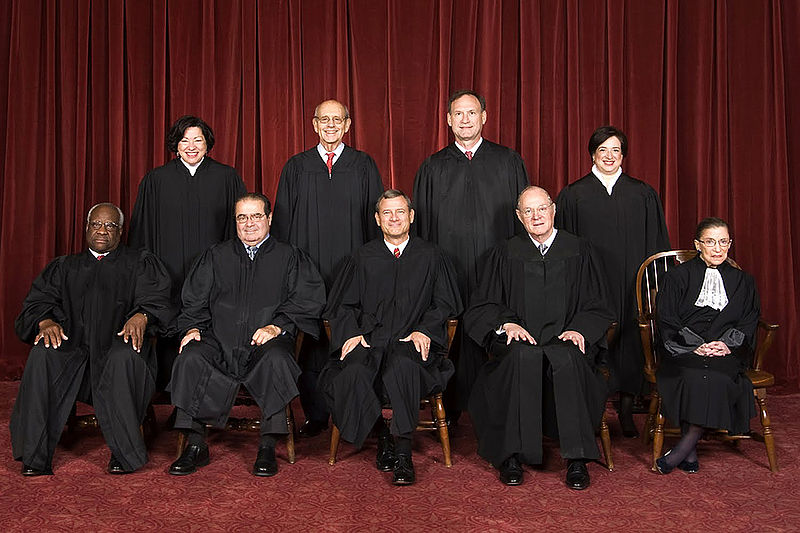Supreme Court To Decide On Health Care And Gay Marriage
Will SCOTUS change the social climate?

Stephen Henderson speaks with Wayne State Law Professor Jon Weinberg about the Supreme Court’s upcoming decisions. Weinberg has worked as a law clerk to U.S. Supreme Court Justice Thurgood Marshall and Ruth Bader Ginsburg.
They discuss the judges’ strategies and psychology, how the court will decide health care, same-sex marriage, and what the role of the Supreme Court should be in US politics.
- Same-sex marriage: Stephen and Weinberg agree that the Supreme Court is likely to decide in favor of legalizing gay marriage. If this happens, it will invalidate remaining state bans on same-sex marriage.
- Cultural shift: Weinberg says that in 1986 when the Supreme Court ruled state laws against same-sex sexual activity constitutional, the deciding Justice, Powell, probably believed he had never met a gay person before. He says that the cultural environment has shifted, and Kennedy, the likely deciding justice in the same-sex marriage case this summer, probably has met and worked with openly gay people. He thinks this will change how the justices approach the question, and compares it to how the role and status of women has shifted over the course of history.
- Constitutional vs. Statutory: Weinberg says that King v. Burwell, the health care subsidy case, is a statutory rather than constitutional case. He says Justice Ginsberg and Chief Justice Roberts both believe that contextual interpretation is important in statutory cases, and predicts that SCOTUS will rule in favor of government-provided health care subsidies.
- Foreign Policy: Weinberg and Stephen talk about the Supreme Court’s decision regarding the separation of powers in foreign affairs. The court ruled that the president has the authority to recognize foreign governments and Congress cannot contradict the president’s decision. Weinberg points out that this can be a partisan issue because the president’s party will usually support exclusive executive power and the opposite party will usually support Congress.
Click the audio link above to hear the full conversation.

